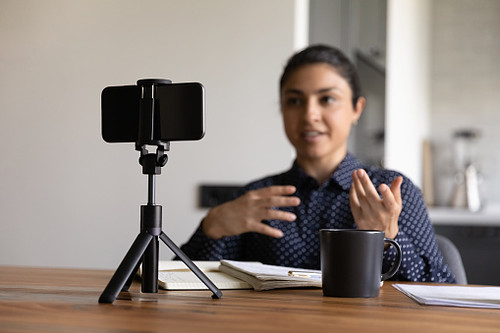I recorded an interview of my principal for my school paper. She claims she didn't consent to the recording. Can I still publish the article?
However, this would not be without some risk. Without a record of the consent that your principal made, either in writing or stated on the recording you made, it’s hard to tell whether or not you will get in trouble for publishing your article. This is because of consent and defamation law.
Whether or not consent is required for the portion of the interview about the teacher would depend on where the conversation was recorded, which in turn affects the journalistic ethics at play. For example, if the interview was recorded in a public place consent would not be required, but if the interview was recorded in a private place consent would be necessary.
This all has to do with whether or not a person has a reasonable expectation of privacy in the place where the conversation happened. Think of when you’re in the doctor’s office--you certainly don’t want someone recording what you say there without your permission! But, in contrast, you don’t necessarily care if someone hears what you say in your local coffee shop (in other words, don’t talk about your plans for world domination at Starbucks).
Without this consent, there is a chance that the principal could sue for libel and defamation. But, don’t worry too much! Because the principal was acting in her official capacity as a principal during the interview, the principal will have to prove what’s called actual malice, like any other public official. To prove actual malice, the principal would have to prove that the student recorded and used the interview with reckless disregard for the truth.
Many states prohibit using a recording device in a private place without the other person’s consent. This is because that person has a reasonable expectation of privacy that what is said and done in their private home or office will remain private. If the conversation or interview is recorded in a public place, then consent is not required because there is no reasonable expectation of privacy in a public place. Anyone can overhear and repeat information that is said in a public place. We’ve all overheard juicy gossip while hanging out at coffee shops, and people know that what they say there can be overheard and repeated by others.
Inside a school and places like offices and conference rooms are considered private. One way to look at this is to ask if the owner or occupant can shut themselves or the place off from public access. For example, a principal can shut and lock her door to keep it separate from the rest of the school. This means the principal has a reasonable expectation of privacy to her office and consent would be needed to interview her. So here’s the big question--did the principal waive her right to privacy by consenting?
In this case, it is likely that you were entitled to record the whole conversation, not just the first half. The principal consented to the interview, knew you were coming to discuss two different issues, and did not ask for the second half of the interview to be kept off the record.
How Can I Avoid This Problem in Future Interviews?
In the future you should either get written permission to record prior to recording or, even better, have that person state their consent on record at the beginning of the recording. You’ll be making your life considerably easier because many times the law requires the consent of both parties being recorded in order for you to legally record and cite the interview. This means both you and the principal would need to consent prior to any recording. In some states, the law requires only one person’s permission to record the conversation, which could be you as the journalist. Make sure to check what your state says about this issue.
Anything Else I Need to Know About Journalism and Consent?
Now we won’t lie to you, if you publish the interview without the principal’s consent, there is a chance the principal may sue you for libel and defamation. A journalist can be sued for libel when he publishes a false statement about a person that is damaging to that person’s reputation. However, a public official has to meet a higher standard, actual malice, to sue for libel. (Remember, actual malice means that the principal would have to prove that the student recorded and used the interview with a reckless disregard for the truth.)
So what is a public official? Well, it is someone in an official position of authority, like a senator, president, or other political representative. So a principal IS considered a public official when acting in a leadership capacity.
But don’t worry, it would be difficult for the principal to sue you for libel and defamation because the recording documented direct quotes from the principal. As long as you did your job in accurately and legally reporting information from the interview, the principal would be unlikely to succeed in a libel suit.
Have questions about free speech rights?
Send your questions our way, and we'll have our team find you an answer. Keep in mind, we’re not actually your lawyers and aren’t representing you. We can definitely help clear some things up and give you some info, but if you need actual legal help for your situation, you should find a lawyer in your area. And don't worry, any information we collect is only for our own research, and we won’t share it or sell it to anyone.




